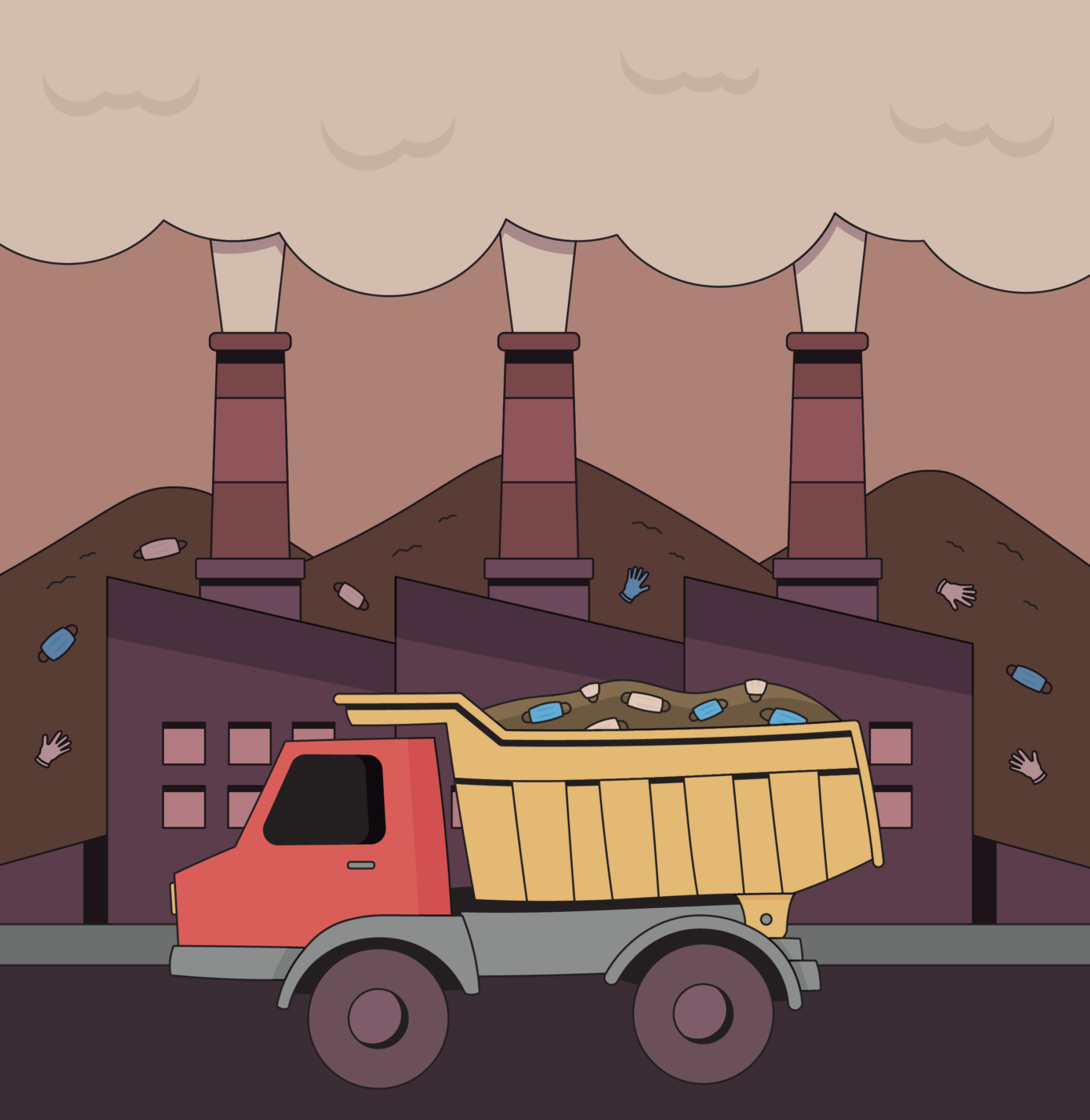AS COVID-19 spreads, the healthcare waste produced to combat the disease continues to mount. Personal protective equipment, medical utilities, and excreta waste aggravate the longstanding garbage crisis in the country. With over a hundred metric tons of waste produced daily, the Inter-Agency Task Force for the Management of Emerging Infectious Diseases urged local government units (LGU) to intensify waste management programs.
In response, LGUs raced to improve local health care waste management (HCWM) systems to temper the accumulating mounds of waste. However, only a fraction of the waste produced has been treated and disposed properly. Waste from hospitals, in particular, must undergo thorough treatment and careful disposal lest it enable infection via cross-contamination. The Department of Environment and Natural Resources (DENR) has attributed the delay to treatment and disposal facilities’ state of under-capacity.
Although the pandemic has largely contributed to overloading the country’s HCWM system, the underfunding and lack of maintenance thereof could have been avoided with earlier preparations. A 2015 report from the World Health Organization found administrative gaps despite the country’s prior experience with HCWM. This assessment underscores the government’s lack of solutions to address the garbage crisis. Instead, the HCWM burden has been relegated to the individual management of hospitals and private companies. Only in November 2020 did LGUs create and have their HCWM plans approved by the DENR.
While the urban centers of Luzon somewhat manage the hordes of healthcare waste, the DENR pointed out that communities in Visayas and Mindanao continue to struggle. With only six out of 26 registered Treatment, Storage, and Disposal (TSD) facilities found outside of Luzon, the remaining six administrative regions of the country are left to fend for themselves. To compensate for the lack of TSD facilities amid the exponentially increasing levels of waste, the DENR reiterated its call for LGUs and hospitals to double down on the issue of health care waste.
Aside from the mismanagement of infectious healthcare waste, the sheer volume of single-use plastic waste could damage the environment. Surgical masks, for instance, take nearly five centuries to decompose and have been increasingly polluting bodies of water. However, even properly disposed plastic harms the environment by releasing potentially toxic chemicals and microplastics as a function of its decomposition.
Although the pervasiveness of COVID-19 currently necessitates the use of single-use materials, the precautionary habit gives rise to irreversible consequences. As hospitals continue to use disposable protective gear to contain the virus’ spread, LGUs and the national government must strengthen its HCWM to keep the consequent public health and environmental risks under control.




